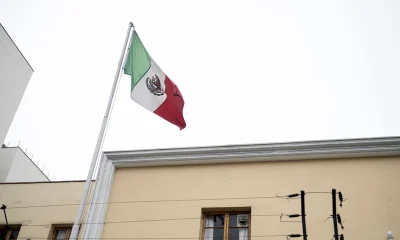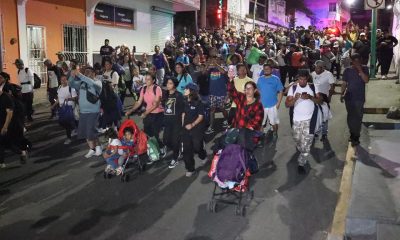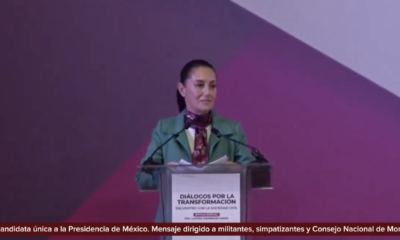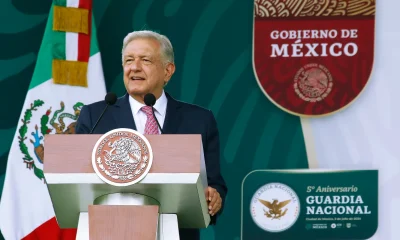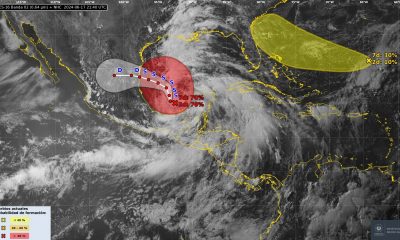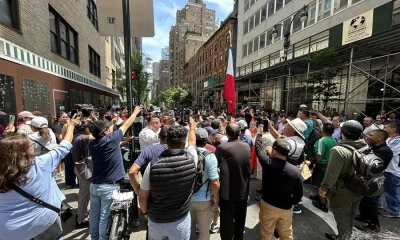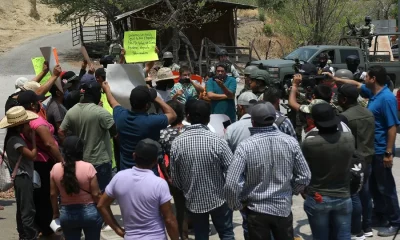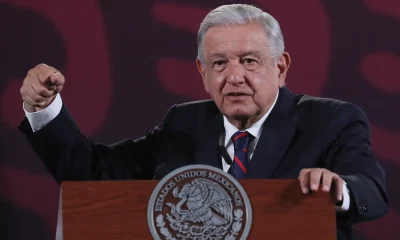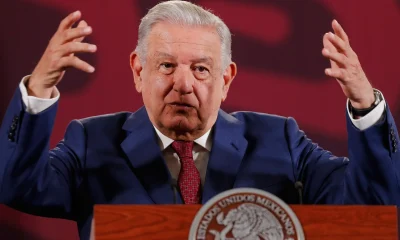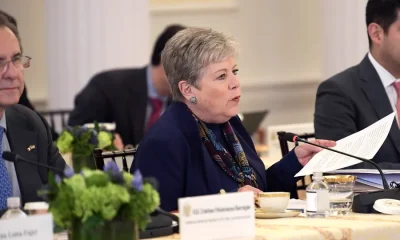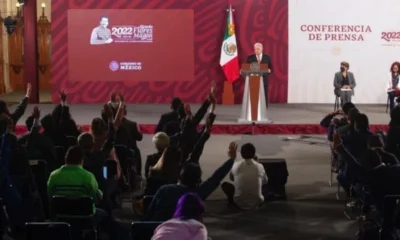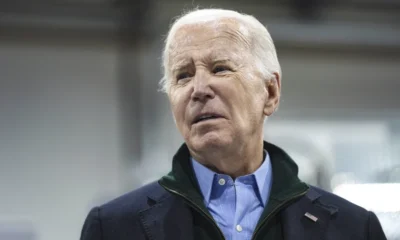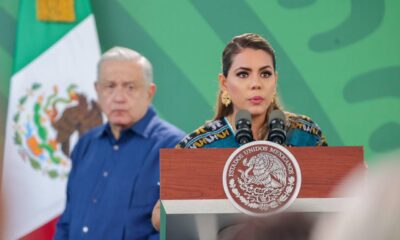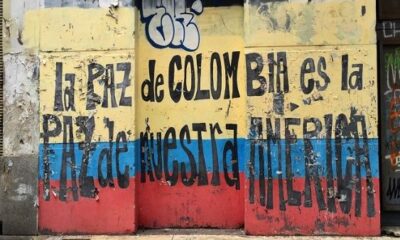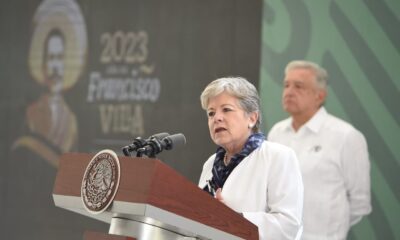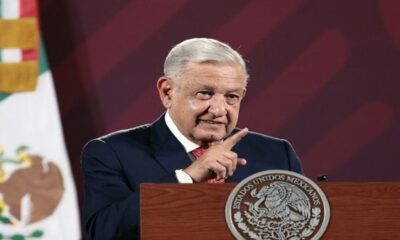International
Mexico rejects U.S. reinstatement of “Stay in Mexico” plan
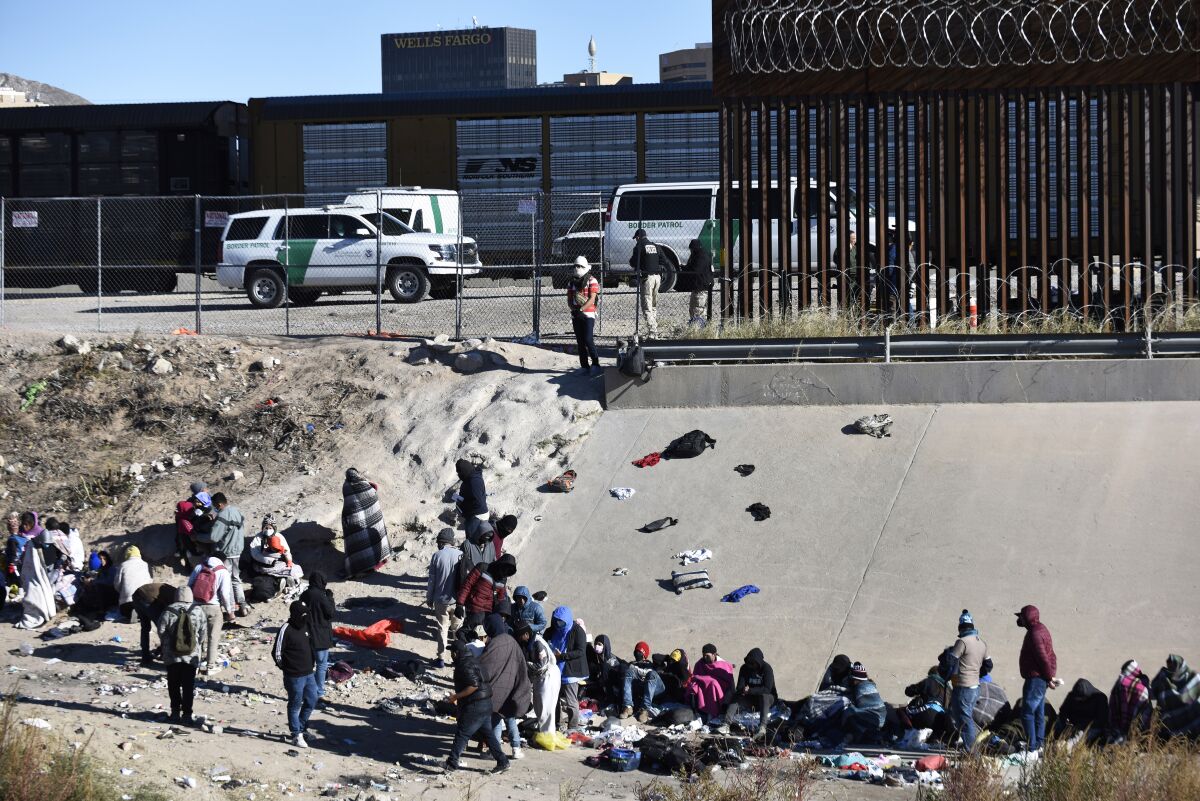
February 7th |
Mexico rejected on Monday that the United States reinstates the program for returning asylum seekers known as “Remain in Mexico”, a measure imposed by the administration of President Donald Trump that the current administration of Joe Biden abolished but was forced to reactivate on one occasion by court order.
In a statement, the Ministry of Foreign Affairs said that U.S. authorities notified it of their intention to restart the return of non-Mexicans to await in Mexico while their asylum application is being examined in the United States.
The Biden administration has not made such intentions public and ended the program, but Republican politicians have litigated in court for its reinstatement. The case reached the U.S. Supreme Court, which authorized the Democratic president to put an end to the measure, but returned the matter to local courts due to certain administrative issues.
According to the Mexican press release, on December 15, 2022, the U.S. District Court for the Northern District of Texas issued a ruling forcing Biden to reactivate the “Remain in Mexico”. The White House did not respond to a request for comment at this time.
The Biden administration has said it opposes the program, which has been criticized by UN agencies and human rights bodies, as it returns asylum seekers to places of high organized crime activity and where many of them have been victims of all kinds of crimes in recent years.
During the Trump administration more than 70,000 asylum seekers were returned to Mexico to await the processing of their U.S. claim there. When Biden was forced to reinstate the program, some 7,600 people were returned from December 2021 to October last year, according to Mexican government data.
That second version of the measure attempted to take a more humanitarian approach and affected a very small percentage of the tens of thousands of migrants who are returned to Mexico each month under a public health rule known as Title 42, which was imposed by Trump at the beginning of the COVID-19 pandemic in order to prevent the spread of contagions, and which Biden has maintained and expanded.
However, the current U.S. government also recently increased the number of temporary visas it grants for certain nationalities in the face of the unprecedented migration flow recorded in the last year at the country’s southern border.
Central America
Guatemala’s Attorney General Consuelo Porras Loses Bid for Constitutional Court Seat

Guatemala’s attorney general, Consuelo Porras, who has been sanctioned by the United States over corruption allegations, lost a key vote on Monday in which a public university selected two of the 10 magistrates for the country’s highest constitutional court. However, she could still seek a seat through another nominating body.
The election of five full magistrates and five alternates to the Corte de Constitucionalidad (CC) is taking place gradually over more than two months and is considered crucial in the ongoing struggle for control of Guatemala’s judiciary, which critics say has long been influenced by a political and economic elite accused of corruption.
According to results announced at a press conference, the governing council of the Universidad de San Carlos de Guatemala (USAC) rejected Porras, who had applied as either a full or alternate magistrate, and instead chose two candidates aligned with the university rector. The vote was held at a hotel in Antigua, about 35 kilometers from the capital.
Despite the setback, Porras — whose term as attorney general ends on May 16 — could still be nominated to the Constitutional Court by the Corte Suprema de Justicia, which appoints two magistrates. The remaining six are selected by the president, the bar association and Congress.
“It’s always a possibility,” the 72-year-old lawyer said days earlier when asked by reporters whether she would seek nomination through another institution if she lost the USAC vote.
Porras has been sanctioned by Washington and the European Union for allegedly attempting two years ago to block the inauguration of President Bernardo Arévalo and for pursuing legal actions against anti-corruption prosecutors, judges, journalists and social leaders since taking office in 2018.
The USAC vote was controversial because most members of the university’s governing council are serving beyond the expiration of their terms. Students, academics and social activists staged protests against Porras’ candidacy.
International
Florida judge sets 2027 trial in Trump’s $10 billion lawsuit against BBC

A federal judge in Florida has scheduled February 2027 for the trial in the lawsuit filed by U.S. President Donald Trump against the BBC, in which he is seeking $10 billion in damages for defamation.
Trump accuses the British broadcaster of airing a misleading edit of a speech he delivered on January 6, 2021, which, he says, made it appear that he explicitly urged his supporters to attack the U.S. Capitol in Washington.
The president filed the suit in December in federal court in Florida, alleging defamation and violations of a law governing business practices when the program was broadcast ahead of the 2024 election.
Trump is seeking $5 billion in damages for each of the two claims.
Lawyers for the BBC unsuccessfully asked the court to dismiss the case, arguing that Trump had not suffered a “legally recognizable harm,” since the investigative program Panorama, which included the edited footage, aired outside the United States.
International
Head-of-state diplomacy key to guiding China–U.S. ties, Beijing says
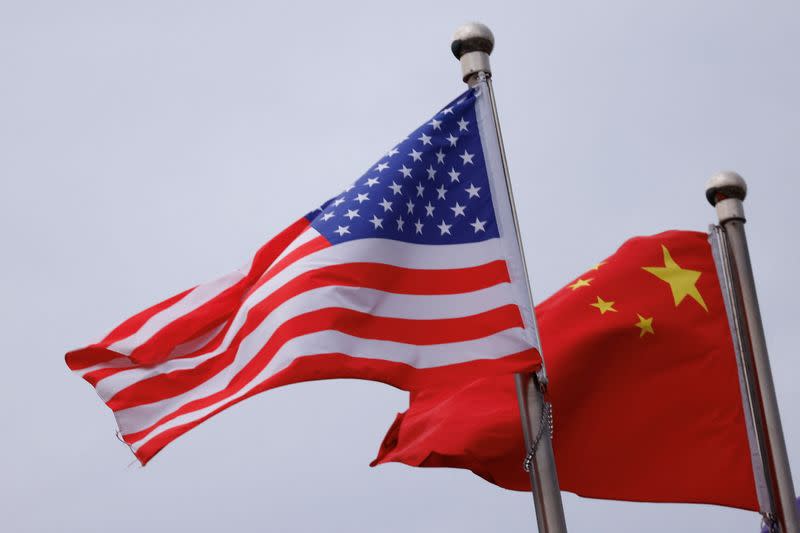
Head-of-state diplomacy plays an irreplaceable strategic guiding role in China–United States relations, Chinese Foreign Ministry spokesperson Lin Jian said on Thursday during a regular press briefing, when asked about high-level exchanges between the two sides.
Lin added that in a recent phone call, U.S. President Donald Trump once again expressed his intention to visit China in April, while Chinese President Xi Jinping reiterated his invitation.
Both sides remain in communication regarding the matter, the spokesperson said.
Lin noted that the essence of China–U.S. economic and trade ties lies in mutual benefit and win-win outcomes.
“Both parties should work together to implement the important consensus reached by the two heads of state, injecting greater certainty and stability into China–U.S. economic and trade cooperation, as well as into the global economy,” he said.
-

 International5 days ago
International5 days agoHead-of-state diplomacy key to guiding China–U.S. ties, Beijing says
-

 International5 days ago
International5 days agoFlorida judge sets 2027 trial in Trump’s $10 billion lawsuit against BBC
-

 Central America2 days ago
Central America2 days agoGuatemala’s president denounces MP raids during Constitutional Court election
-

 International5 days ago
International5 days agoTrump administration to end special immigration operation in Minnesota
-
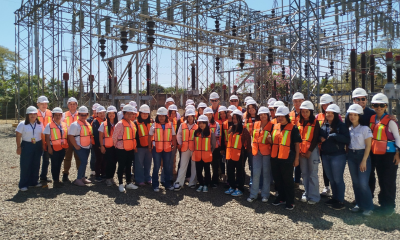
 Central America2 days ago
Central America2 days agoTeens visit ETESAL substation to learn about responsible energy use
-
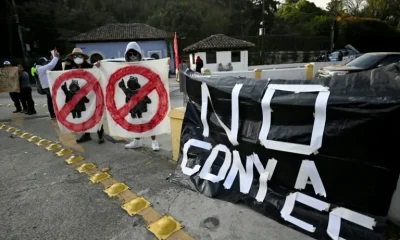
 Central America10 hours ago
Central America10 hours agoGuatemala’s Attorney General Consuelo Porras Loses Bid for Constitutional Court Seat

























